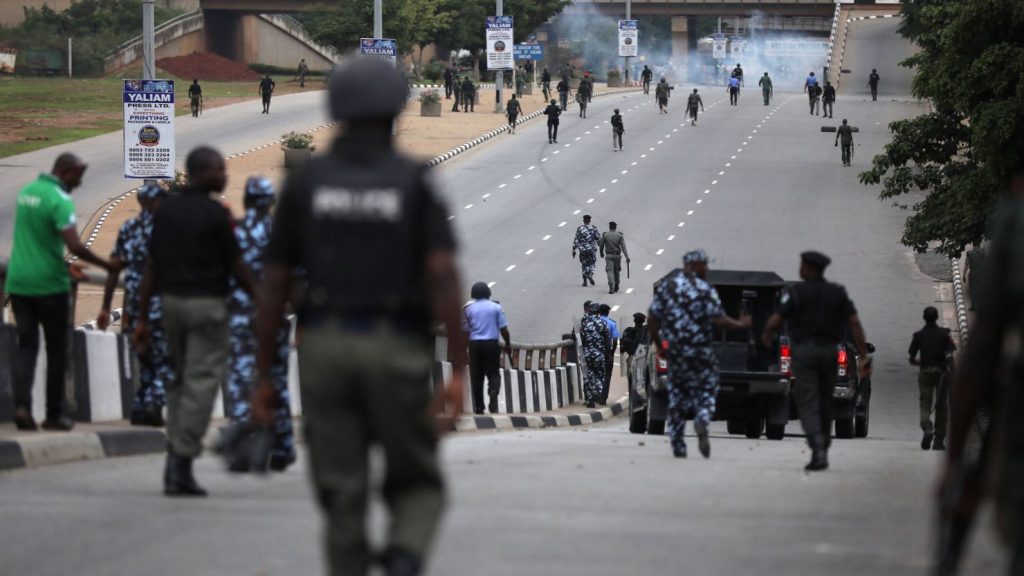Nigeria Army Claims Shia Protesters Opened Fire in Abuja Clash Leaving 12 Dead

ABUJA – Violent clashes between Nigerian security forces and members of the Islamic Movement in Nigeria (IMN) turned deadly Friday. Conflicting accounts have emerged about the chain of events that left 12 people dead and dozens injured in the capital’s Wuse district. The military maintains Shia protesters initiated gunfire during a pro-Palestinian demonstration. Meanwhile, eyewitnesses and human rights groups allege disproportionate use of force by soldiers.
Military’s Account of the Incident
Nigeria army spokesman Major General Onyema Nwachukwu confirmed troops engaged with protesters after what he described as “unprovoked violence” during the Quds Day procession. “These individuals disrupted public order, attacked security personnel with dangerous weapons, and forced our troops to respond defensively,” Nwachukwu stated Sunday during a press briefing at Defence Headquarters. Military officials released bodycam footage showing protesters hurling stones at an armored personnel carrier moments before sustained gunfire erupted.
Conflicting Eyewitness Accounts
Contradicting the army’s narrative, IMN spokesperson Sheikh Sokoto showed journalists mobile phone videos depicting soldiers firing automatic weapons into crowds containing women and children. “We marched peacefully from Banex Plaza after Friday prayers,” Sokoto insisted. “The armored vehicles appeared suddenly and opened fire without warning.” Amnesty International’s Nigeria director Isa Sanusi corroborated claims of military overreach. He stated investigators found bullet casings matching army-issued rifles at the scene.

Background and Casualty Dispute
The violence marks the deadliest confrontation between Nigerian authorities and Shia groups since 2019. In that year, the government banned IMN following earlier clashes. Friday’s demonstration coincided with International Quds Day – an annual event initiated by Iran’s Islamic Revolution supporters. It drew thousands to streets worldwide. Protesters in Abuja waved Palestinian flags and chanted slogans against Israeli military actions in Gaza, with some burning effigies of Western leaders.
Casualty figures remain disputed. While a government intelligence report obtained by international media cites 11 protesters and one soldier killed, IMN leaders claim at least five fatalities with over 20 gunshot injuries. Medical staff at Asokoro District Hospital reported treating 19 civilians for bullet wounds, three in critical condition. Security forces arrested 295 individuals, according to police statements.
Debates on Nigeria’s Approach
The incident has reignited debates about Nigeria’s approach to religious minority groups and protest management. Former Kaduna State governor Nasir El-Rufai tweeted: “When will we learn that bullets can’t extinguish ideas?” Conversely, National Security Adviser Nuhu Ribadu praised troops for “restoring order against violent extremists.” Analysts note the clashes occurred hours after the U.S. Embassy warned of potential unrest in Abuja, though officials haven’t confirmed any connection.

International Reactions and Next Steps
International reactions have been mixed. Iran’s Foreign Ministry summoned Nigeria’s charge d’affaires in Tehran, while the Arab League called for an independent investigation. The United Nations High Commissioner for Human Rights expressed concern about “recurring patterns of violence” during Nigerian protests. Domestic critics highlight parallels to the 2015 Zaria massacre where army forces killed over 300 IMN members.
As forensic teams comb through the clash sites, lingering questions persist about the military’s rules of engagement and the IMN’s continued activities despite its proscribed status. With Nigeria army already grappling with Boko Haram insurgencies and bandit violence in northern states, Friday’s bloodshed underscores the delicate balance between security imperatives and civil liberties in Africa’s most populous nation.

